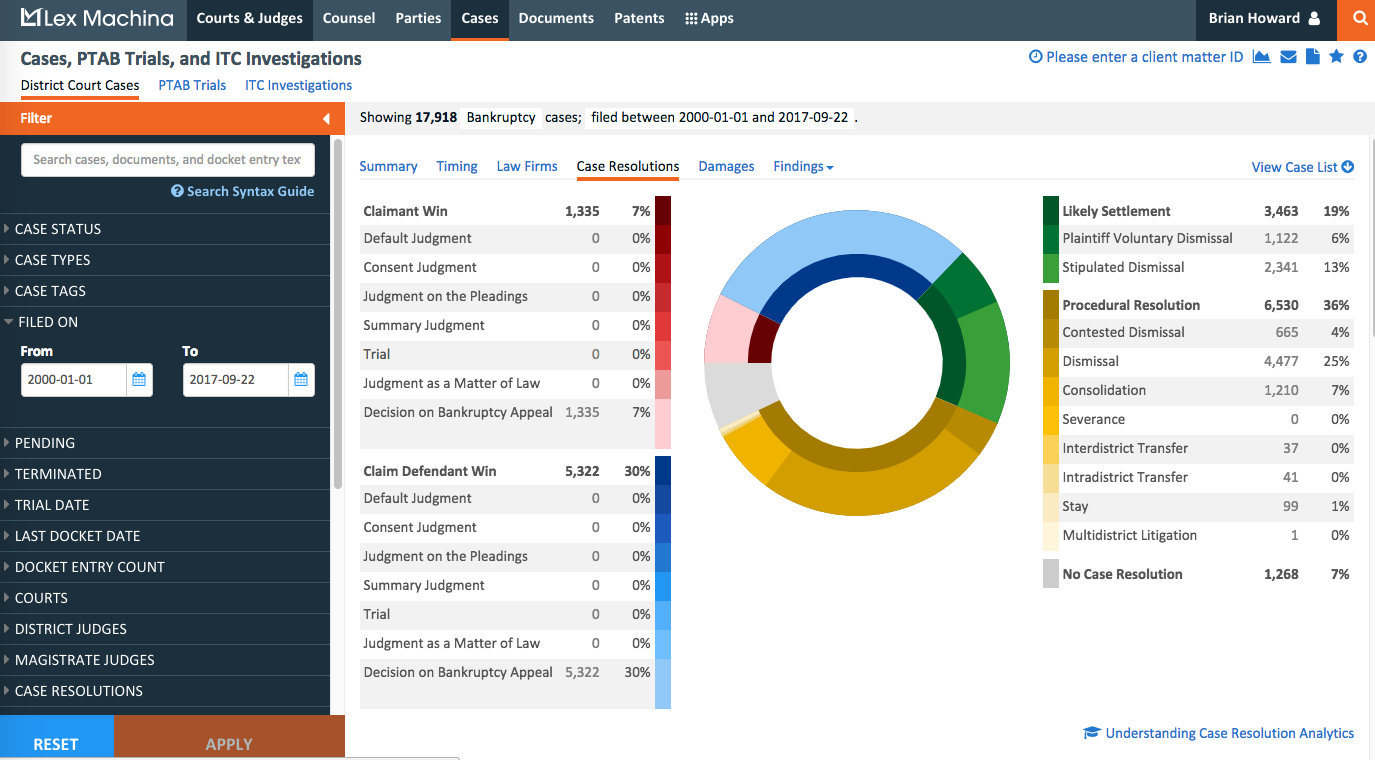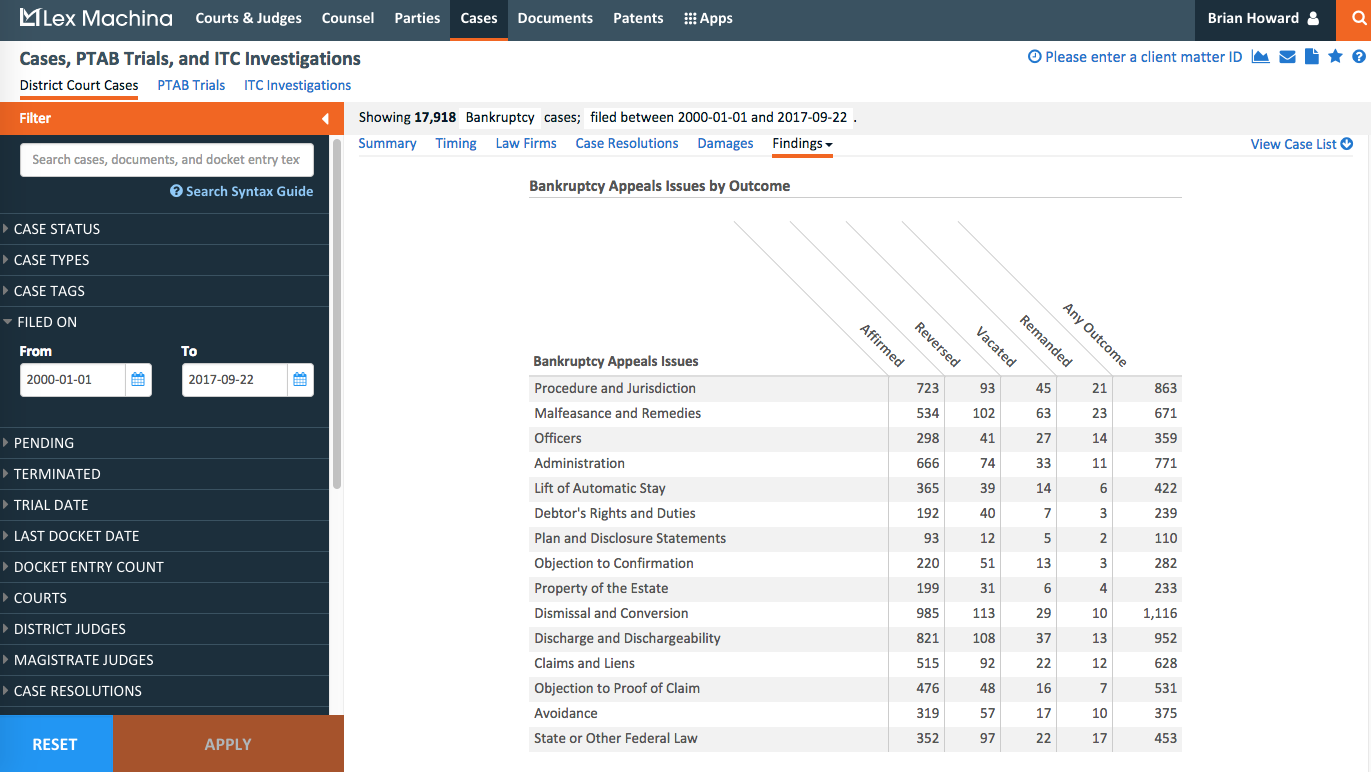Lex Machina is pleased to announce the launch of our offering for Bankruptcy Appeals in District Court. With this launch, practitioners can, for the first time ever, get hard quantitative data on how parties, law firms, and judges perform on bankruptcy appeals.
Practitioners, especially bankruptcy court specialists, facing an unfamiliar district judge in an appeal can research the prior experience of the judge, seeing what issues they have encountered in past cases, and whether they’ve upheld the Bankruptcy court on those issues. Companies can find counsel who have a winning record on the issues that matter most, as well as using data on the expected duration of an appeal to refine budgeting.
With over 17,900 cases in our database and detailed information on the issues decided in those appeals, Lex Machina gives practitioners an edge over the competition. For example, on a national level, judges are far more likely to affirm the bankruptcy court’s decision (30% of cases, shown as Claim Defendant Win below) than they are to reverse, remand, or vacate (7%, shown as Claimant Win below). Regardless of which side of an appeal one is on, knowing whether the District Court judge has contributed to that 30% affirmance rate can affect strategy and provide a concrete advantage.
Beyond focusing on a particular judge, Lex Machina allows practitioners to filter the analytics (shown in the right window above) by any number of criteria (in the darker left bar above) including dates of filing and termination, court, judge, party, law firm, role, issue, and more.
Lex Machina also tracks the issues decided in bankruptcy appeals in District Court. Nationally, the most common issues include Administration, Objection to Proof of Claim, and Dismissal and Conversion. Districts courts are more likely to affirm that any other outcome, regardless of the issue.
With the ability to tailor a customized case list and see analytics over different aspects of the appeals process, Lex Machina gives counsel unprecedented insight into the record and behavior of judges, parties and firms in bankruptcy appeals in district court.

